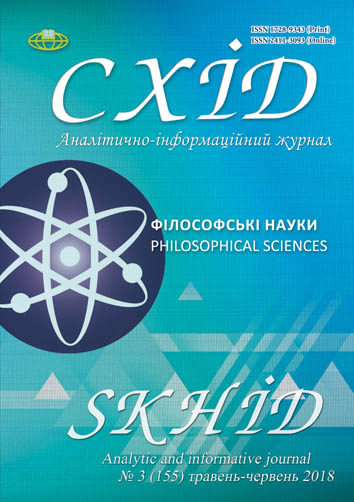Stanley J. Grenz's communitarian ecclesiology
DOI:
https://doi.org/10.21847/1728-9343.2018.3(155).139493Keywords:
Stanley J. Grenz, communitarian ecclesiology, ecclesiological theology, community, ChurchAbstract
The article is devoted to the study of Stanley J. Grenz's communitarian ecclesiology. Grenz sees the postmodern situation as a helpful perspective, which challenges contractual ecclesiology that is oriented to the individual. Grenz sees community as a foundation for one's personal identity formation. In Grenz's mind, personal identity is never a private reality, but has a communal element, for it is shaped by the community in which the person is a participant. Community, therefore, is integral to epistemology, to our identity formation, and to the sustaining of character, virtue, and values. Community forms the content of the Kingdom of God and is the more central motif in the Bible. Grenz concludes that Kingdom is a "sphere of existence" in which humanity is called to live. The church then "is a foretaste of the eschatological reality" that God will bring to existence one day and thus is "a sign of the kingdom". The church is the fundamental vehicle for mirroring divine image. Participation in the Christian community includes reforming one's personal narrative in accordance with the story of Jesus as well as accepting the story of this Christian community as one's own. ,"serif";mso-fareast-font-family: "Times New Roman";mso-ansi-language:EN-US;mso-fareast-language:RU;mso-bidi-language: AR-SA'>the Department of Cultural StudiesDownloads
References
Erickson, Millard J. 1997. The Evangelical Left: Encountering Postconservative Evangelical Theology. Eugene, Oregon: Wipf and Stock Publishers, 2001; reprint, Grand Rapids, Michigan: Baker Books.
Grenz, Stanley J. (Winter 2000). Conversing in Christian Style: Toward a Baptist Theological Method for the Postmodern Context in Baptist History and He-ritage. 35/1: 82-10. Available at: http://www.encyclopedia.com/doc/1G1-94160872.html.
Grenz, Stanley J. 2003. "Ecclesiology." In The Cambridge Companion to Postmodern Theology. Ed. Kevin J. Vanhoozer. Cambridge,U.K.: Cambridge University Press, 2004; reprint, 2003: 252-68.
Grenz, Stanley J. 2000. Renewing the Center: Evangelical Theology in Post-Theological Era. Grand Rapids, Michigan: Baker Academic.
Grenz, Stanley J. 2001. Social God and the Relational Self: Trinitarian Theology of the Imago Dei. London: Westminster John Knox Press.
Grenz, Stanley J. 1997. The Moral Quest: Foundations of Christian Ethics. - Downers Grove, Illinois: InterVarsity Press.
Grenz, Stanley J. 1994. Theology for the Community of God. Carlisle, U.K.: The Paternoster Press.
Grenz, Stanley J. and Franke, John R. 2001. Beyond Foundationalism: Shaping Theology in a Postmodern Context. Louisville, Kentucky: Westminster John Knox Press.
Grenz, Stanley J. and Olson, Roger E. 1997. 20th Century Theology: God & the World in a Transitional Age. Downers Grove, IL: InterVarsity Press.
Olson, Roger E. 1999. The Story of Christian Theology: Twenty Centuries of Tradition and Reform. Downers Grove, IL: InterVarsity Press
Webber, Robert E. 2002. Younger Evangelicals: Facing the Challenges of the New World. Grand Rapids, Michigan: Baker Books.
Downloads
Published
How to Cite
Issue
Section
License
Copyright (c) 2018 Yevgen Shatalov

This work is licensed under a Creative Commons Attribution-NonCommercial-NoDerivatives 4.0 International License.
1. Authors bear responsibility for the accuracy of facts, quotations, numbers and names used.
2. Manuscripts are not sent back.
3. The publisher does not always agree with the authors' opinion.
4. The authors reserve the right to authorship of the work and pass the first publication right of this work to the journal under the terms of a Creative Commons Attribution-NonCommercial-NoDerivatives 4.0 International License. This license allows others to distribute (copy) the published work for non-commercial purposes, provided there is mandatory attribution to its authors and a link to the first publication in our journal.
5. The authors have the right to conclude separate supplement agreements that relate to non-exclusive work distribution in the form in which it has been published by the journal (for example, to upload the work to the online storage of the journal or publish it as part of a monograph), provided that the reference to the first publication of the work in this journal is included.

